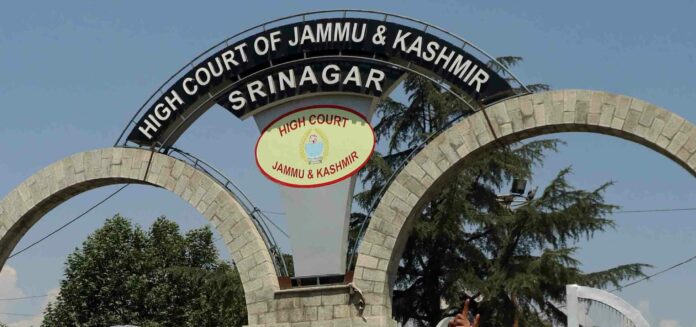SRINAGAR: “A fundamentalist Muslim cannot be equated with an extremist or a separatist,” the Jammu & Kashmir and Ladakh High Court observed.
The remarks were made by Justice Atul Sreedharan, presiding as a single bench, during the handling of a petition that contested the preventive detention of 22-year-old Shahbaz Ahmad Palla. The detention was challenged, among other reasons, on the basis that the individual had been labeled a “hard-core fundamentalist” and had purportedly chosen to collaborate as an Over Ground Worker for The Resistance Front (TRF), an organisation allegedly associated with the LeT (Lashkar-e-Taiba) outfit.
The petition, WP(Crl) No 142/2022, was filed by the father of the detainee, represented by Advocate Shabir Ahmad, challenging the detention order dated April 8, 2022. The order was executed, resulting in Shahbaz Ahmad Palla’s detention on April 14, 2022, in Kot Bhalwal Jail, Jammu.
The grounds for detention mentioned in the order alleged that Shahbaz Ahmad Palla was involved in anti-national activities and was a member of the militant organization TRF (The Resistance Front). However, during the proceedings, it was argued that the grounds of detention were vague, non-specific, and lacked concrete evidence connecting the petitioner to the alleged activities.
The bench observed, “The usage of the phrase “fundamentalist ideology” by the District Magistrate, does not necessarily mean that the detenue possess an extremist or separatist ideology. The “Oxford Fundamentalist ideology‟ is part and parcel of the Abrahamic faith where the adherents have to necessarily believe in 4 certain fundamentals of the religion to be accepted as the adherents of that religion. Therefore, someone who steadfastly pursues or follows the fundamentals of an Abrahamic faith, is undoubtedly a fundamentalist but there is no negativity associated with it and it is distinct from an extremist or a separatist.”
So far as Petitioner’s case is concerned, Court said,”Fundamentalist an adherent of fundamentalism‟ pertaining to a Muslim who is a fundamentalist is merely someone who believes in the fundamentals of Islam and steadfastly pursues the same. It cannot have a negative bearing on his personality. The same is as a fundamentalist Muslim cannot be equated with an extremist or a separatist. Therefore, the said ground also is vague and has been used lucidly without proper understanding.”
The District Magistrate of Pulwama issued a detention order citing the necessity to prevent the detenu from engaging in activities detrimental to the State’s security. The detenu’s father contested this order.
One of the key arguments presented by the petitioner’s counsel, Shabir Ahmad Dar, was that the grounds of detention were conveyed to the detenu in English instead of his native language.
However, the court observed that the detenu had signed the execution report in English and had completed education up to the 11th standard, indicating a basic understanding of the language. As a result, the court ruled that this could not be considered a violation since the detenu had not claimed any language barrier.
Another contention put forth by the petitioner was that the grounds of detention were vague, lacking specificity, and relied on mere speculations and conjectures. The court concurred with this argument, noting that the grounds failed to provide specific details about the alleged acts that posed a threat to the nation’s security. Additionally, the court found no statements from witnesses directly accusing the detenu of such acts.


